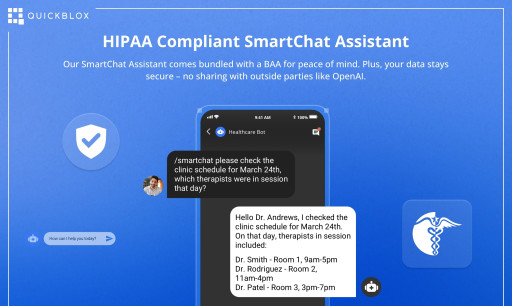Health - Purple Foxy Ladies originally published at Health - Purple Foxy Ladies
NEW YORK, June 20, 2023 (Newswire.com) - iQuanti: With summer just around the corner, it's important to understand the safest ways to get some much-needed vitamin D in your system - especially when participating in recreational summer activities.
While staying indoors throughout summer might be the safe and sound way to avoid the need for urgent care, we know this is no way to enjoy your summer vacation fully. Instead, look at our tips below to help you and your loved ones take in the vitamin D of summer while having fun and staying safe.
Watch out for signs of dehydration
When participating in activities, drinking water, and staying hydrated are essential regardless of the season. In summer, however, staying hydrated is even more important to regulate your body temperature. Dehydration can cause unclear thinking and unstable moods, lead to further health issues and cause your body to overheat, which results in painful muscle cramps, fatigue, and heat exhaustion.
Whether you are going for a walk, to the beach, to watch your favorite summer sport, or simply sunbathing in the backyard, take a bottle of water with you and stay hydrated.
Some typical signs of dehydration include:
Tiredness that leads to exhaustion and fatigue
Excessive thirst accompanied by lightheadedness
A dry mouth
Rapid heart rate and fast breathing
Dark-colored urine and going to the toilet less often
The best way to treat hydration is to rehydrate your body immediately by drinking water, diluted fruit juice, and liquids that contain hydrates, such as sports drinks.
Use plenty of sunscreen to avoid sun damage
According to the Skin Cancer Foundation, 1 in 5 Americans will have developed skin cancer by the age of 70 - approximately 9,500 people every day.
Dermatologists recommend that sunscreen with a minimum of SPF 30 be used to block at least 97% of the sun's UVB rays.
Wearing sunscreen while attending summer events and activities can prevent nasty sun damage, severe sunburn, and skin cancer.
Be proactive and keep a first-aid kit on-hand
Take a proactive approach to your recreational summer safety and keep a first aid kit on hand.
Whether your summer is spent by the water, camping, playing sports, or at home in the backyard, you never know when a first-aid kit will come in handy.
To be cautious and proactive with your summer safety, it is recommended to have a first-aid kit that includes the following:
- Saline
- Sterile gauze pads
- Tweezers
- Thermometer
- Instant cold compress
- Adhesive bandages
- Compress dressings
- Antiseptic wipes
Some other ways to take a proactive approach to summer recreation are to:
Learn how to swim and spot rips in the water
Wear protective clothing like hats, boots, helmets, knee pads, wrist guards, etc.
Take regular breaks to avoid injury and burnout
Let someone know if you are not feeling well
Of course, a first aid kit can't resolve all injuries. So, know when to see your local urgent care center for injuries that need further attention quickly.
Learn CPR
People love to participate in outdoor recreational activities in summer, like swimming, boating, camping, and hiking. It's always best to do activities that you have some experience in already or have an experienced person with you. Safety in numbers could save your life.
Whether someone has had a heat stroke while hiking or had an unfortunate swimming accident, having someone that knows CPR in your group could mean the difference between life and death.
Have fun and be safe this summer
Summer is the time of year when heat-related incidents, sporting injuries, swimming accidents, and bicycle collisions happen the most. But don't let these circumstances stop you from having a great outdoor summer.
With these summer recreational safety tips and urgent care centers close by, you'll be prepared for almost anything and can enjoy a safe and happy summer.
Common services provided by urgent care centers include in-person & virtual care for cold and flu symptoms, allergic reactions, physical examination, and more.
Contact Information:Keyonda Goosby
Public Relations Specialist
[email protected]
(201) 633-2125
Original Source: Summer Recreational Safety Tips
Health - Purple Foxy Ladies originally published at Health - Purple Foxy Ladies




